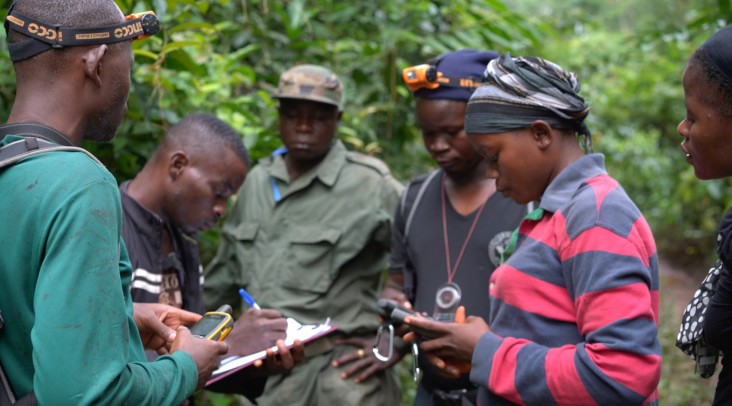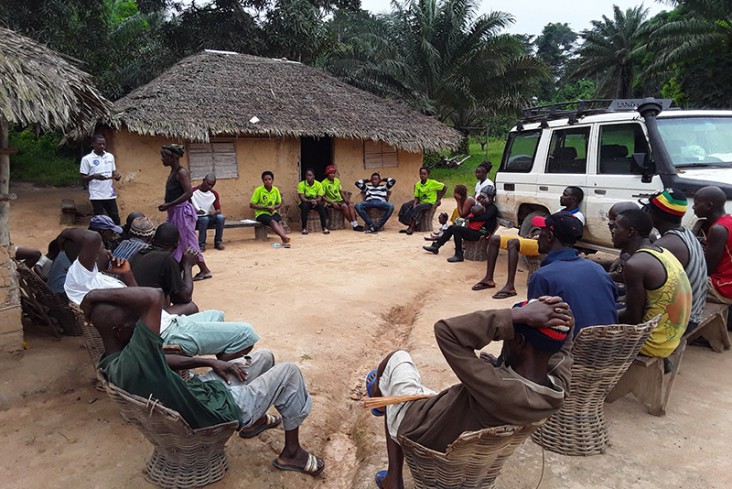Speeches Shim

Mathaline Garley is a community ecoguard from Druwar, one of the communities around the Grebo-Krahn National Park in Liberia. As an ecoguard, she is responsible for collecting data on wildlife and illegal human activities in the forest, and sharing these findings with the Forestry Development Authority (FDA), which is responsible for the management of the country's national parks. The information collected is vital to inform the decisions of park managers.
When she’s not patrolling the forest with her team, she is helping her colleagues create awareness in the communities on the perils of illegal hunting, mining and other human activities that are destructive to the forest and also harmful to humans, the case of the chemicals used for illegal mining polluting water bodies and people being one example. What makes her story remarkable is that Mathaline, a guardian of the forest, wasn’t always a friend. She was a bush meat seller.
In the past, Mathaline would buy 10 to 20 illegally-hunted animals at a time from a neighbouring town, and head back to her town to sell. Not only was this harmful to Liberia's biodiversity, it was also harmful to her and risky, as she was illegally trafficking in wildlife and returning to her village as late as 1-2 AM. Despite all this, she was barely getting by.

Felicia Kyne is also a community ecoguard and colleague of Mathaline. In the past, she relied solely on her parents for her well-being. Now she’s paying for the education of her younger siblings. The inspiring stories of Felicia and Mathaline are also those of Joaty Munnah, Ophelia Darbo, Linda Nyanway, Catherine Watkins, and many other women who have taken on roles that have up until now been male-dominated in Liberia and several other parts of the world. Even most definitions on the internet define the word ‘ecoguard’ with male pronouns.
At a recruitment and training program for community member ecoguard candidates held in October 2018, 16 out of the 20 participants were women. Today, these women have contributed to protecting the rich resources of the Grebo-Krahn National Park and in raising awareness in communities surrounding the forest of the value of a healthy and balanced environment. And it is not only the forest that has benefited, these women have also earned a sustainable living as ecoguards. Mathaline has managed to save up to buy land and a motorbike for her transportation business. Linda, Jeaty and Catherine have all raised enough money to build zinc-roofed houses through their earnings as ecoguards.
If you needed a practical story illustrating that biodiversity conservation and economic well-being could be achieved together, this is one. This story also proves that roles, like an ecoguard, are not limited to any one gender. The story of the female ecoguards is only a start of many success stories to come—for these women and the many others they will inspire to become guardians of the forest.
This story originally appeared on the West Africa Biodiversity and Climate Change (WA BiCC) program’s Exposure channel.
The USAID-funded West Africa Biodiversity and Climate Change (WA BiCC) program, through WCF has been supporting the Forestry Development Authority in the training of eco-guards to protect the Grebo-Krahn National Park and other forests in Liberia.

Comment
Make a general inquiry or suggest an improvement.